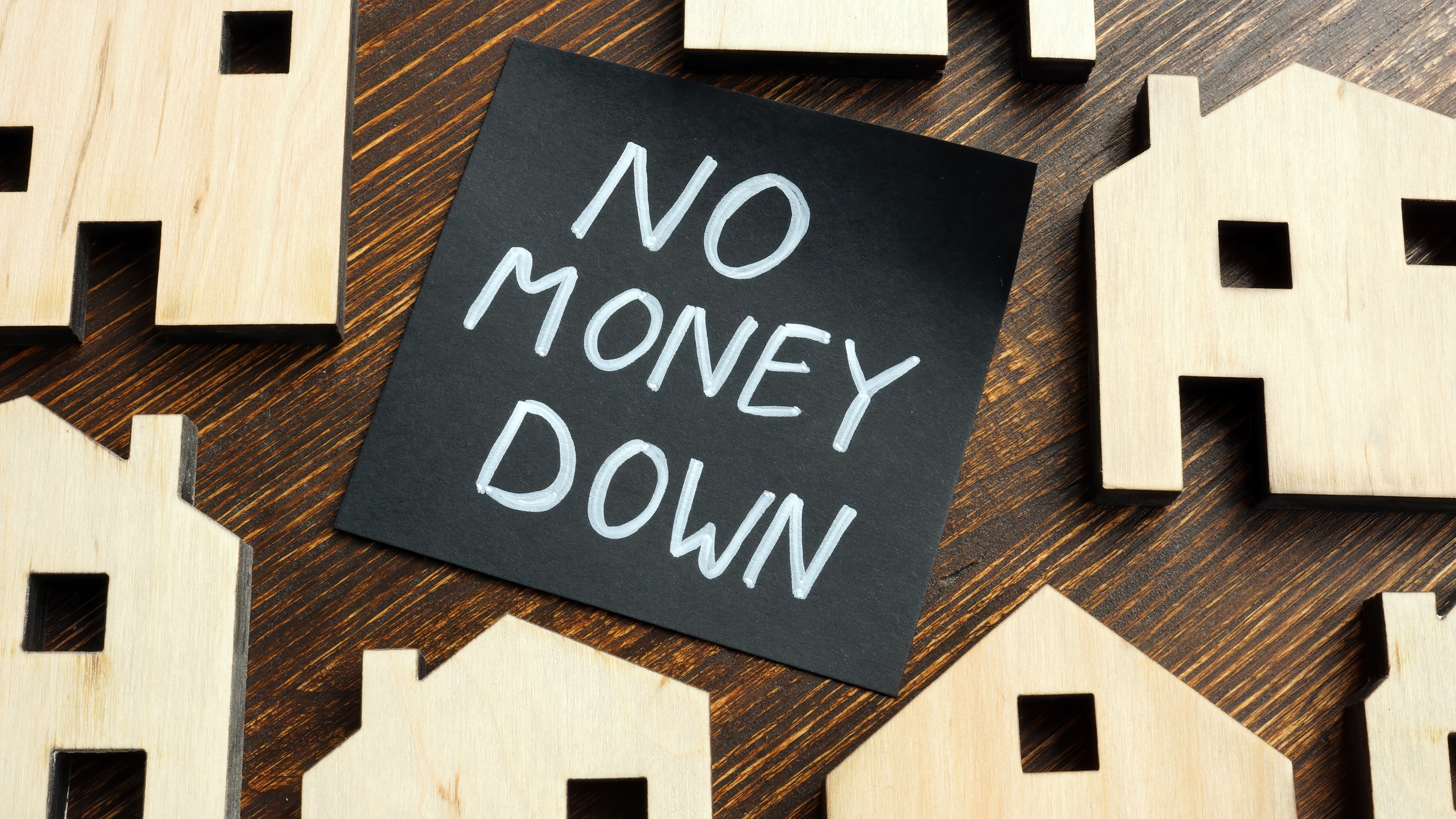To Buy or Not to Buy a House
Consider these pros (and cons) of buying and renting in today’s market.

Profit and prosper with the best of Kiplinger's advice on investing, taxes, retirement, personal finance and much more. Delivered daily. Enter your email in the box and click Sign Me Up.
You are now subscribed
Your newsletter sign-up was successful
Want to add more newsletters?

Delivered daily
Kiplinger Today
Profit and prosper with the best of Kiplinger's advice on investing, taxes, retirement, personal finance and much more delivered daily. Smart money moves start here.

Sent five days a week
Kiplinger A Step Ahead
Get practical help to make better financial decisions in your everyday life, from spending to savings on top deals.

Delivered daily
Kiplinger Closing Bell
Get today's biggest financial and investing headlines delivered to your inbox every day the U.S. stock market is open.

Sent twice a week
Kiplinger Adviser Intel
Financial pros across the country share best practices and fresh tactics to preserve and grow your wealth.

Delivered weekly
Kiplinger Tax Tips
Trim your federal and state tax bills with practical tax-planning and tax-cutting strategies.

Sent twice a week
Kiplinger Retirement Tips
Your twice-a-week guide to planning and enjoying a financially secure and richly rewarding retirement

Sent bimonthly.
Kiplinger Adviser Angle
Insights for advisers, wealth managers and other financial professionals.

Sent twice a week
Kiplinger Investing Weekly
Your twice-a-week roundup of promising stocks, funds, companies and industries you should consider, ones you should avoid, and why.

Sent weekly for six weeks
Kiplinger Invest for Retirement
Your step-by-step six-part series on how to invest for retirement, from devising a successful strategy to exactly which investments to choose.
A recent study released by Zillow shows that home buyers nationwide will face more challenges this year, with inventory down 6.5 percent year-over-year and home values rising 3.3 percent from last June. While the market is seemingly in the seller’s favor, many opt to buy regardless of the housing market—be it for stability, tax benefits or something else altogether.
As a financial planner, I often find myself discussing real estate and its impacts on one’s financial future. And, while there are plenty of reasons to buy, there are also a number arguments supporting renting. Below are a few considerations to keep in mind when faced with that decision:
1. Stability. A home provides a place to live—stability for you and your family. When you own a home, you are no longer at the mercy of a landlord who changes his/her terms or, even worse, sells the property. There is also something to be said about making that payment and knowing that with each payment you are closer to owning that asset.
From just $107.88 $24.99 for Kiplinger Personal Finance
Become a smarter, better informed investor. Subscribe from just $107.88 $24.99, plus get up to 4 Special Issues

Sign up for Kiplinger’s Free Newsletters
Profit and prosper with the best of expert advice on investing, taxes, retirement, personal finance and more - straight to your e-mail.
Profit and prosper with the best of expert advice - straight to your e-mail.
2. No Surprises. While you can certainly be caught off guard by a leaky roof or a broken water heater, your monthly payment typically will not vary, so you can plan ahead. This helps with budgeting, cash flow and other aspects of a comprehensive financial plan.
3. Tax Benefits. Tax breaks from home ownership can be significant. As a home owner, you are able to deduct many home-related expenses. And, unless you owe more than $1 million, all the interest you pay in your mortgage payment is tax deductible.
4. Diversification. While real estate hasn’t been proven to be the best investment over a long period of time, barely keeping up with inflation, it can serve as a great diversification tool. Consumers commonly invest in stocks, bonds, cash, CD's, etc. through their brokerage and retirement accounts. Real estate is another asset class that can help diversify your investable assets. Plus, as a tangible asset, real estate appeals to many. The key is to diversify and avoid investing solely in real estate.
5. Building Equity & Retirement Planning. As a homeowner, you get to build up your equity by paying down the mortgage over the years. If you are successful in paying down your mortgage, you will likely have a lower cost of living in retirement.
Why Rent?
While buying a home certainly has its advantages, renting often works better for many. So, if you are in the part of the population that is unable to buy at this time, here are a few good reasons to rent:
1. Flexibility. While some people spend most of their lives in one location, there are many who prefer to move around, experience new neighborhoods, cities, etc. It’s hard to put a dollar value on that experience and enjoyment. The same goes for one’s career: If you are anticipating a change, it may be best to rent, as buying a home can hinder that flexibility to pick up and move.
2. Skip Out on Home Ownership Costs. Homeowners are painfully familiar with the extra and unforeseen costs that come with purchasing and maintaining a home. These include realtor costs, mortgage origination fees, property taxes, HOA fees (if applicable), moving costs, furnishing, decorating, leaky pipes, gardener, you name it. Often times, these costs are higher than people anticipate. As a tenant, you can enjoy the perks of your abode, without having to worry the financial burden of those transactional and ongoing expenses.
3. Illiquidity. For obvious reasons, a house isn’t something that can generally be turned into cash overnight. Many people invest their life savings into a home, thus putting the bulk of their net worth into an illiquid asset. While there can certainly be benefits to not cashing in on our savings, there is also a risk that comes with tying up a large portion of your wealth into such an asset. Renting allows for flexibility and other investment options for your assets.
4. Building Credit. As consumers, we need a healthy credit for pretty much all we do—getting a new cell phone plan, buying a car, a home, or even renting. While renting doesn’t boost credit the same way owning a home often can, creating a history of on-time rental payments can, in some cases, help build your credit to qualify for a mortgage down the road. This history can be created when (and if) your landlord reports your payment data to the credit agencies. Alternatively, there are several third-party services that can help report this information on your behalf. Once your credit is in a good place, you can reevaluate and see if owning a home is right for you.
Taylor Schulte, CFP is founder and CEO of Define Financial, a San Diego-based fee-only firm. He is passionate about helping clients accumulate wealth and plan for retirement.
Profit and prosper with the best of Kiplinger's advice on investing, taxes, retirement, personal finance and much more. Delivered daily. Enter your email in the box and click Sign Me Up.

Taylor Schulte, CFP®, is founder and CEO of Define Financial, a fee-only wealth management firm in San Diego. In addition, Schulte hosts The Stay Wealthy Retirement Podcast, teaching people how to reduce taxes, invest smarter, and make work optional. He has been recognized as a top 40 Under 40 adviser by InvestmentNews and one of the top 100 most influential advisers by Investopedia.
-
 Dow Adds 1,206 Points to Top 50,000: Stock Market Today
Dow Adds 1,206 Points to Top 50,000: Stock Market TodayThe S&P 500 and Nasdaq also had strong finishes to a volatile week, with beaten-down tech stocks outperforming.
-
 Ask the Tax Editor: Federal Income Tax Deductions
Ask the Tax Editor: Federal Income Tax DeductionsAsk the Editor In this week's Ask the Editor Q&A, Joy Taylor answers questions on federal income tax deductions
-
 States With No-Fault Car Insurance Laws (and How No-Fault Car Insurance Works)
States With No-Fault Car Insurance Laws (and How No-Fault Car Insurance Works)A breakdown of the confusing rules around no-fault car insurance in every state where it exists.
-
 2026's Tax Trifecta: The Rural OZ Bonus and Your Month-by-Month Execution Calendar
2026's Tax Trifecta: The Rural OZ Bonus and Your Month-by-Month Execution CalendarReal estate investors can triple their tax step-up with rural opportunity zones this year. This month-by-month action plan will ensure you meet the deadlines.
-
 Have You Aligned Your Tax Strategy With These 5 OBBBA Changes?
Have You Aligned Your Tax Strategy With These 5 OBBBA Changes?Individuals and businesses should work closely with their financial advisers to refine tax strategies this season in light of these five OBBBA changes.
-
 How to Find the Best International Moving Company for Your Big Move Abroad (and Avoid Costly Mistakes)
How to Find the Best International Moving Company for Your Big Move Abroad (and Avoid Costly Mistakes)It's best to use an international moving company to protect your belongings and budget when relocating to another country. Here's how to find a reputable firm.
-
 I'm a Real Estate Expert: 2026 Marks a Seismic Shift in Tax Rules, and Investors Could Reap Millions in Rewards
I'm a Real Estate Expert: 2026 Marks a Seismic Shift in Tax Rules, and Investors Could Reap Millions in RewardsThree major tax strategies will align in 2026, creating unique opportunities for real estate investors to significantly grow their wealth. Here's how it works.
-
 Do Self-Storage REITs Deserve Space in Your Portfolio? It's a Yes From This Investment Adviser
Do Self-Storage REITs Deserve Space in Your Portfolio? It's a Yes From This Investment AdviserSelf-storage is an overlooked area of the real estate market, even though demand is strong. Investors can get in on the action through a REIT.
-
 Is Fear Blocking Your Desire to Retire Abroad? What to Know to Turn Fear Into Freedom
Is Fear Blocking Your Desire to Retire Abroad? What to Know to Turn Fear Into FreedomCareful planning encompassing location, income, health care and visa paperwork can make it all manageable. A financial planner lays it all out.
-
 I'm a Real Estate Investing Pro: This High-Performance Investment Vehicle Can Move Your Wealth Up a Gear
I'm a Real Estate Investing Pro: This High-Performance Investment Vehicle Can Move Your Wealth Up a GearLeave online real estate investing to the beginners. Accredited investors who want real growth need the wealth-building potential of Delaware statutory trusts.
-
 I'm an Investment Adviser: Here's Why You Should Resist a Zero-Down Mortgage
I'm an Investment Adviser: Here's Why You Should Resist a Zero-Down MortgageWhile it's certainly enticing, a zero-down mortgage comes with significant risks, especially if home values decline or you want to refinance.